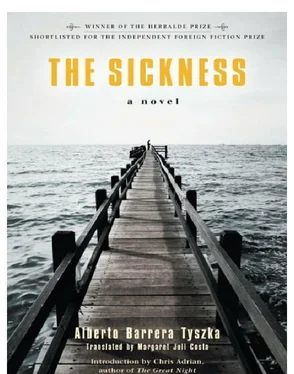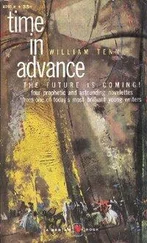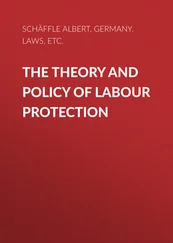“If you’re that worried, why don’t you call him?” Adelaida says, appealing to her common sense and meanwhile chewing on a raw carrot. They’re both on a diet again.
“What would I say to him?”
“Don’t say anything. At least you’ll know he’s well, that he’s alive. Do you want me to phone him?”
Karina shakes her head. When she saw that he was no longer sending e-mails, she had tried phoning him herself on various occasions and at various times. She just wanted to hear his voice and then hang up, nothing more. She just needed to be sure he was safe. But no one ever answered. The phone just rang and rang.
She has also considered going to see him. She found his address in his medical file. He lives in the city center, near Avenida Fuerzas Armadas, on the corner of San Ramón. She could always leave work a little early one evening and simply go over there. She could, for example, wait on the pavement across from his building for a while, where she wouldn’t look too obvious, just to see if he went in or out, to make sure he was still alive.
“Do you feel guilty?” Adelaida unleashes the question without warning, one evening when they’re both leaning at the bar of Las Cibeles. “Because that’s what it looks like.”
“No, I just can’t stand not knowing what happened, not hearing from him. That’s all. Does that seem odd to you? He sends that message and then. . nothing. Absolute silence, he’s just vanished.”
“Perhaps he’s punishing you.”
“Me? If he’s punishing anyone, it’s Dr. Miranda.”
“Perhaps he got fed up and realized that the doctor’s never going to help him, that it’s all a bit of leg-pull, that he’s never going to take him seriously. Perhaps that was the final test. And now it’s over. The guy disappears for ever.”
But Karina’s anxieties are not so easily soothed. That same evening, she stays late after work and decides to try one last thing. She feels more desperation than fear, which is why she takes the risk of writing another letter.
Dear Ernesto,
First of all, I must apologize for taking so long to reply to your last e-mail. Unfortunately, as I warned you, I had some urgent business to attend to away from Caracas. For reasons beyond my control, I then had to go on somewhere else and couldn’t check my e-mail for several days. And that’s why I couldn’t answer your call for help.
When I did finally get to my e-mail, it was too late. I’ve been calling the number you sent me, but no one ever answers. I apologize again for this situation and I quite understand if you’re upset and, given that it was an emergency, I do hope you sought help from someone else. But please let me know that you’re alright and were able to cope satisfactorily with the situation.
Hoping to hear from you soon,
Andrés
Ever since the illness installed itself between them, their relationship has become less fluid, pricklier, more difficult. Now there are three of them. There is always an invisible weight between them. They are father and son plus one, the other, a third unnameable force that never leaves them alone. They spend a lot more time together, but time is different now. They talk less and less. They know it, they feel it, but they don’t know how to express it, what to do. It may be that both of them would like to leave, run away, never see each other again, but they daren’t do that either. They can’t bear the thought that they will say goodbye like this, although they have no option. In more than one sense — although it’s a dreadful cliché—there is no easy remedy.
Andrés goes with him to the chemotherapy sessions and tries to be with him in the apartment after four in the afternoon, when Merny has left. She has finally agreed to come every day to his father’s apartment, although it sometimes seems that she doesn’t want to get too involved. Andrés thinks she’s just protecting herself, that she doesn’t want to share in his father’s death. Perhaps that’s partly how they all feel: the certain sense of imminent death produces other forms of life.
The kids are aware that something’s going on too. They may not know precisely what it is, but they know. It’s not just their grandfather’s pallor, the hair loss, and the look of resigned sadness that seems to have settled in his eyes. Behind the grown-ups’ pact of silence, there’s something that not even his clinical appearance can conceal. It’s hard to define, barely palpable, but, at the same time, obvious. It’s there. It’s a managed, domesticated violence, but by no means submissive or tame. It remains a brutal violence. Right before their eyes, a life is being pitilessly laid waste, swept away. There’s a lot of gauze, a lot of cleanliness, a lot of qualified staff, but there’s no pity. It’s a crime to which there are far too many witnesses, a legalized crime, a crime no one can stop.
In Christa Wolf’s novel, In the Flesh , a woman in hospital realizes with horror: “There’s someone trying to murder me.” Exactly. She is. Her own illness is. Andrés shouldn’t read books like this, but he seeks them out, with ever more determination; perhaps he’s trying to find in their pages what he can’t resolve at the hospital, at home, at the cinema, or over family lunches on Sundays. Some nights, he reads into the small hours. He’s closed his office for a month.
“I’m on vacation,” he said.
And yet that isn’t enough. Whenever he’s alone with his father, he doesn’t know what to say, how to look at him. Javier Miranda seems to feel the same. He doesn’t say anything either. He stares at the floor or mutters some brief response, says he’s tired and falls asleep or pretends to. Andrés stays with him, in silence. It seems to him cruel, absurd. This is exactly what will await them both when it finally happens. Silence. This is their sole destiny. Silence. This is precisely what they both fear and what hurts them most. Silence.
Perhaps he’s imagining his death. Perhaps his father is thinking about that all the time, about the exact situation, the precise moment when his existence will end. When Andrés thinks about his own death, he has more fears than certainties. A recurring image troubles him: he’s with some friends at a restaurant. Everyone is eating, drinking, and talking. Suddenly, he suffers a massive heart attack. Out of the blue. No burning sensation in the stomach, no shooting pains up the left arm. It’s like a gunshot, like a bullet that doesn’t leave his body, but stays inside, that fells him in half a second. That’s the last thing Andrés sees: a few glasses, an ashtray, an almost empty bread basket. . that is his final landscape as he crashes face-down on the table.
But his father would never have imagined that his death would be the way it presents itself to him now. Sickness is a mistake, a bureaucratic blunder on nature’s part, an absolute lack of efficiency. Everyone wants a swift death that lasts only a second, that is as surprising as it is lethal. It’s a very deep desire, part of the human condition. Sudden death is almost a utopia.
His father, however, avoids thinking. He resists, he forces his imagination or his memories to move on whenever he feels those thoughts approaching, trying to corral him. At first, immediately after they got back from Isla Margarita, he started doing inexplicable things. Every morning, he would walk to the newspaper kiosk three blocks from his house, buy a pack of cigarettes and, on the way back, break each cigarette in half, one by one. He kept up this routine for a week and a half, every morning.
Then he started buying things he didn’t need. One Saturday, he went to the Chinese market and bought various bottled sauces, bean sprouts and other herbs that he subsequently threw in the bin. One afternoon, he went to the building where he had worked for thirty-eight years. He stood at the door, as if stunned, just looking. He saw himself going in through that door, every day, for years and years. He saw himself in different suits, the pale gray one, the brown one he bought in December, the blue one with the wide lapels, and the different ties he wore. It was a film repeating the same shot ad infinitum, that one brief scene. For thirty-eight years, Javier Miranda worked as an administrator for the oil industry. First, when they were still American-owned companies, and after they were nationalized too, but always in the same building. At sixty-five they retired him, him and his whole generation. He doesn’t know for how long he stood there. He thought about going in, about going up to the eighth floor, but felt afraid. He probably wouldn’t know anyone now, and no one would know who he was. He walked home. He was walking for several hours.
Читать дальше












